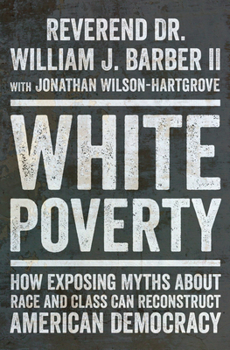White Poverty: How Exposing Myths about Race and Class Can Reconstruct American Democracy
When most Americans think of poverty, they imagine Black faces. As a teenager, Reverend William J. Barber II recalls seeing Black mothers interviewed on television whenever there was a story on food stamps or unemployment; poverty, then as now, was depicted as an essentially Black problem. In a work that promises to have lasting repercussions, Barber--now a leading advocate for the rights of our nation's poor and the "closest person we have to...
Format:Hardcover
Language:English
ISBN:1324094877
ISBN13:9781324094876
Release Date:June 2024
Publisher:Liveright Publishing Corporation
Length:288 Pages
Weight:0.88 lbs.
Dimensions:1.0" x 5.9" x 8.5"
Customer Reviews
0 rating





